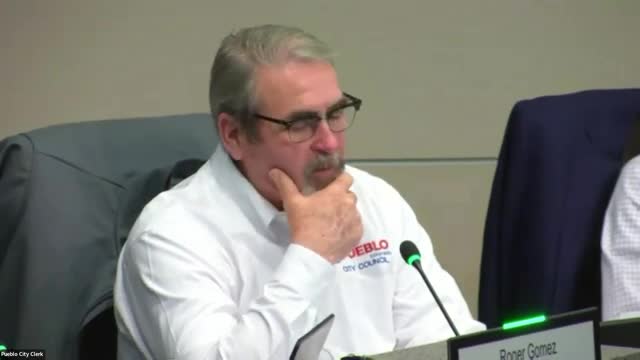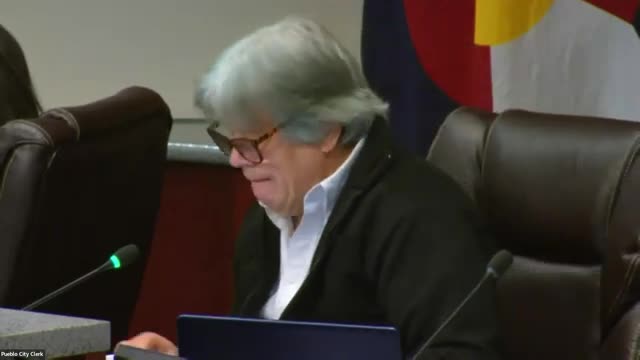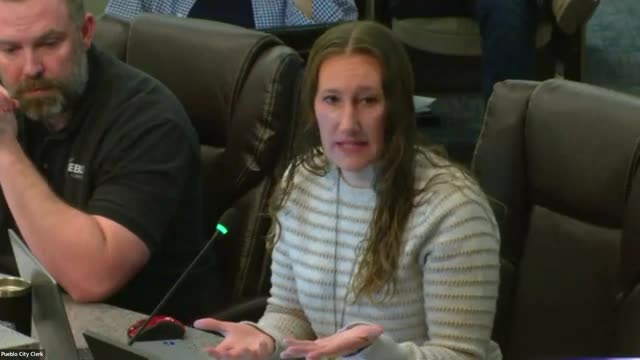Article not found
This article is no longer available. But don't worry—we've gathered other articles that discuss the same topic.

Council opens review of meeting rules; staff to propose amendments drawn from municipal "Bob's Rules" and Appendix A

Pueblo council debates public-forum name-drawing, agrees to test digital lottery and to draft a sign restriction for chambers

